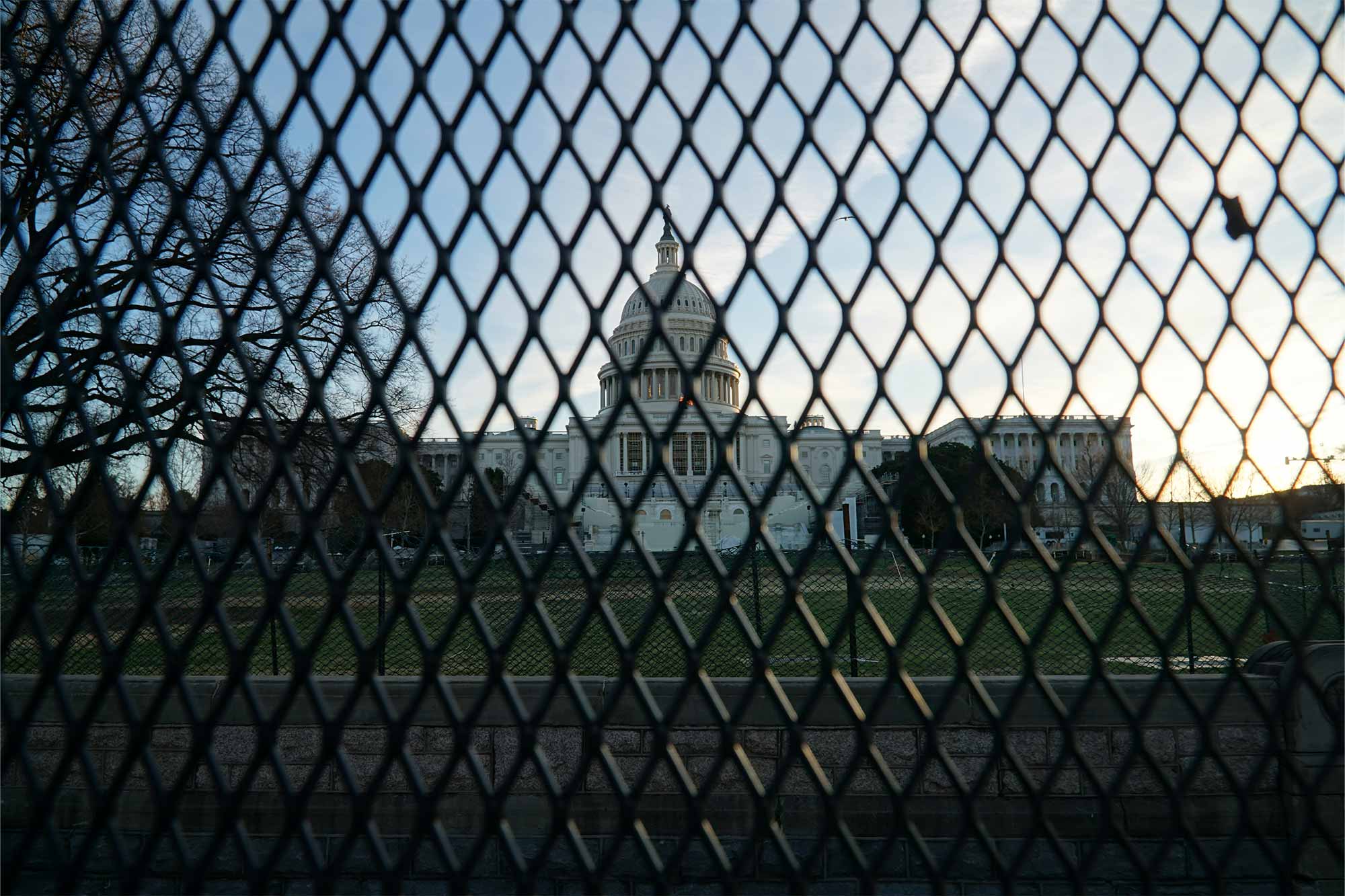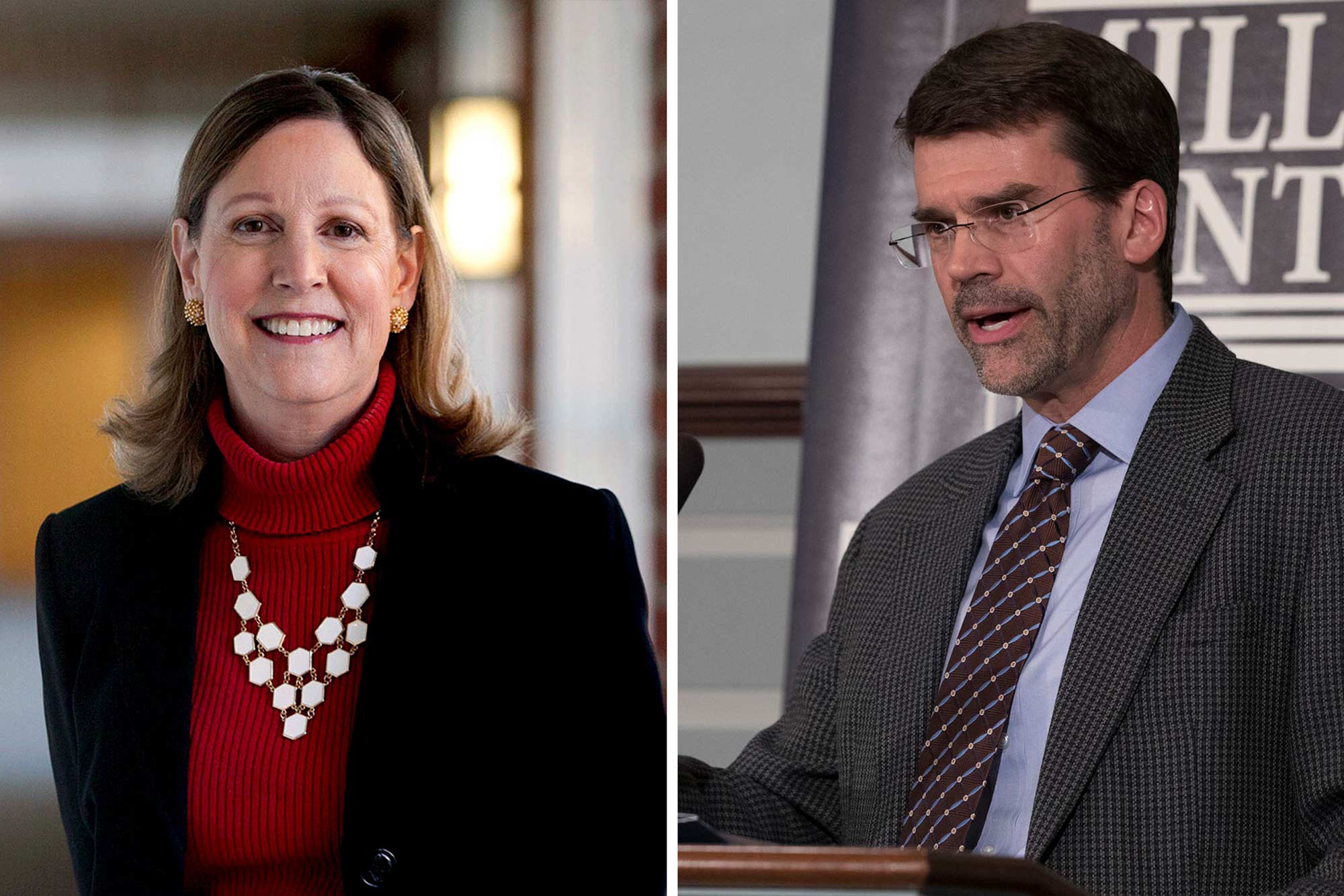Q. Do you think the hearings will change any minds? Why or why not?
Perry: Three-quarters of American households watched at least some of the Watergate hearings, and Richard Nixon’s approval rating dropped from 44 to 31% that summer of 1973.
Only time will tell whether the current polarized electorate will react similarly to Congress’s investigation of this threat to our republic and Donald Trump’s role in it. Yet 70% of independents disapproved of the 45th president as he petulantly exited the Oval Office in January 2021. One year later, his approval, even among Republicans, had fallen from 82% to 50%. The ex-president is clearly not immune to public opinion’s vicissitudes.
Video of the invasion shown in the first public hearing, overlaid with timelines of President Trump’s incitement of the marauding crowd and panicked police calls for reinforcements, could only fail to convince the most unpersuadable Trumpists.
McKee: Given the intense partisanship surrounding the issue, and the fractured media environment we live in, it’s hard to say. The hearings certainly will not cause a mass conversion of Trump’s core supporters, but they may have an effect on what we might think of as the “persuadable margin” – people who have not been paying close attention, but were uncomfortable with what happened on Jan. 6 and do not believe Trump’s lies about the stolen election.
The hearings were carefully designed to deliver a series of key moments that can circulate in both traditional and social media. Some of those may break through partisan bubbles, or simple apathy, to create at least a limited shift in public opinion – a shift to the realization that the insurrection was an assault on the Constitution, and that its apologists are staging a slow-moving assault on democracy. Ultimately, there is a question about whether there is still any capacity for shame in American public life. I hope that there is.
Q. Did anything about the hearing surprise you?
Perry: Even the most scrupulous follower of Jan. 6’s disgraceful history had to be impressed by Congresswoman Liz Cheney’s riveting narrative of the insurrection, worthy of a winning prosecutor’s opening statement in a criminal trial. The graduate of the University of Chicago’s Law School painted a stark picture of the violent attack, as did Capitol Police Officer Caroline Edwards, who described the hours she spent engaged in bloody “hand-to-hand combat” with the invaders, despite a serious head injury suffered when the invaders slammed her to the concrete.
Trump’s own attorney general, William Barr, and the president’s daughter, Ivanka, admitted in their recorded testimony that they knew the president had lost the non-fraudulent election, and Barr told him so in profane declarations.
McKee: Having followed the investigation fairly closely, I was familiar with the general evidence, including the intensely violent nature of the assault. Nonetheless, the specific evidence that Trump in effect endorsed the hanging of Mike Pence is deeply disturbing. To have a sitting American president support the assassination of his own vice president by a mob is horrifying.
This is extraordinary, and we should not lose our capacity to be shocked by such utterly unacceptable behavior. Is this really what we want the United States to be?






